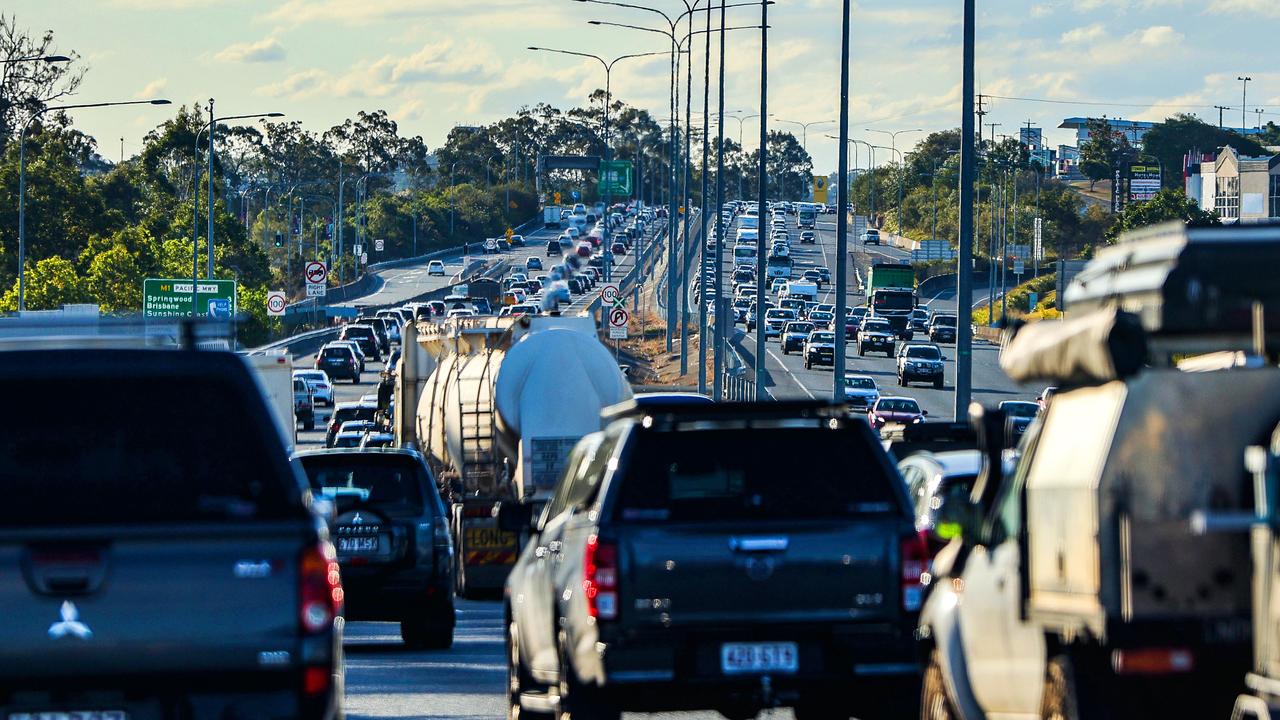Aussie city named one of the worst in the world for traffic
An Aussie city has somewhat surprisingly been chosen as the gridlock capital of Australia – though not everyone agrees. HAVE YOUR SAY
QLD News
Don't miss out on the headlines from QLD News. Followed categories will be added to My News.
Brisbane motorists face some of the worst traffic congestion in the world, according to a new report from the US, but it’s “bogus methods” have been called into question by an industry expert.
The 2023 Global Traffic Scorecard, by location-based data and software-as-a-service analytics company Inrix, has identified Brisbane’s traffic congestion had increased 10 per cent since 2022, and ranked the 12th worst in the world out of more than 900 cities across 37 countries.
WHAT DO YOU THINK? VOTE AND COMMENT BELOW

Congestion in Brisbane outranked major global cities such as Bangkok, Rome, Dublin and Washington.
The report’s analysis found Brisbane drivers lost 74 hours sitting in congestion, the highest in the country and 10th highest globally, with a 2 per cent increase between Q1 2023 and Q1 2024.
Of the top 25 cities with the worst congestion, Brisbane also ranked with the sixth highest commute distances at over 12 kilometres.
The only other Australian city to feature on the list was Melbourne, ranked at the 22nd worst in the world, with drivers having lost 62 hours sitting in congestion.
The ranking comes from Inrix’s aggregate anonymous data from diverse datasets, such as phones, cars, trucks and cities.
New York topped the list, with drivers losing 101 hours stuck in traffic, followed by Mexico City and London.
But a Queensland transport expert has rubbished the report.
Deputy Director of the Griffith University’s Cities Research Institute Professor Matthew Burke said the indices like the Inrix scorecard penalise cities for investing in public transport and roadworks.
“The methods used in many of these indices are bogus. They’re opaque, the people pulling the data together don’t share it with researchers,” he said.
“They don’t make it available for scrutiny and it gives us very little confidence.”
The researcher, who serves in roles for TMR and the Motor Accident Insurance Commission, added the data was problematic as it only applies to how fast vehicles move.
“It doesn’t look at humans, and how fast humans move, which punishes cities like us that are investing in public transport,” he said.
“If you think of not widening the Smith Street motorway on the Gold Coast with another lane, but adding the light rail, great decision, it’s moving a lot of people at speed.
“Not widening the Southeast Freeway but creating a new lane for buses that now moves more people in peak hour than the entire freeway, a great decision moving those people at speed.”
Mr Burke said person speeds are actually going quite well in Brisbane and vehicle speeds were actually “a bit less important” in how fast cities moved people in peak hour.
The Royal Automobile Club of Queensland said more investment into public transport was necessary for Brisbane but the index did not paint the full picture.
Head of public policy at RACQ Dr Michael Kane said the increase in congestion was not surprising as a consequence of strong population growth and a history of underinvestment in Brisbane’s public transport system.
“Congestion however is not always a measure of failure in a city, as many of the cities listed with high congestion are also some of the most economically successful,” he said.
“Congestion is a symptom of economic activity, and the key is to keep traffic movements away from highly productive areas, like the inner city as much as possible.”
Dr Kane said the RACQ undertook a separate analysis of 106 US cities which showed a strong correlation between population size, economic productivity and congestion.
“We found that congestion increases as cities get larger and more productive,” he said.
“A city that is completely without congestion is also likely to have limited economic activity and falling populations.”
He added planning for Brisbane must focus heavily on improving and increasing public and active transport options to commute to and from the CBD.
“Governments must also fix, finish and extend Brisbane’s outer ring of motorways to take traffic off local roads and corridors by allowing them to bypass busy central areas altogether,” he said.
It is the latest report to place Brisbane’s congestion the worst in the country after Transurban’s mobility trend report in August last year found the same result.
Originally published as Aussie city named one of the worst in the world for traffic







